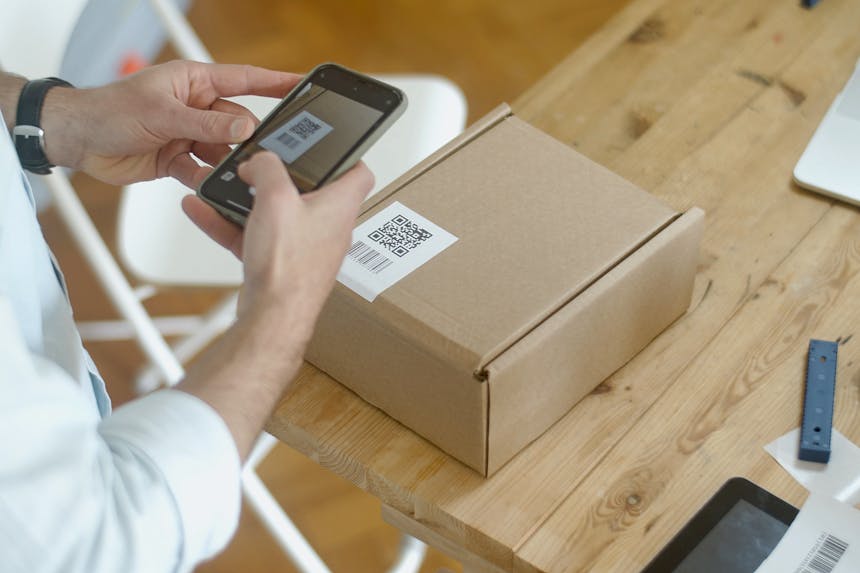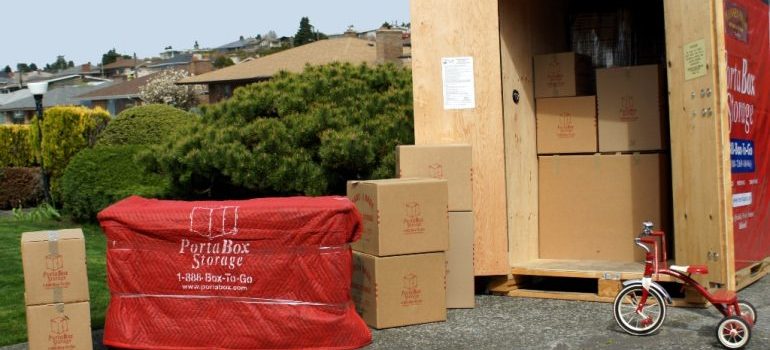What is the future of storage solutions?
get a quote
The concept of storage has undergone a significant transformation over the years, driven by evolving consumer needs, technological advancements, and a growing preference for convenience. Among the many storage solutions available, PortaBox Storage has emerged as a flexible and increasingly popular option for Seattle families but also individuals and businesses. But what does the future hold for this sector? From advanced container designs to AI-driven logistics, the future of storage solutions is poised to be dynamic, customer-centric, and technology-focused.
Understanding portable self-storage
Portable self-storage allows customers to have storage units—often called “pods”—delivered to their location. customers pack these containers at their convenience, and then the company transports them to a secure storage facility. This model offers unparalleled convenience and flexibility, making it particularly popular for moving, renovations, downsizing, or even temporary business storage.
As the demand for portable self-storage grows, companies are innovating to stay ahead of the curve. The future promises to bring significant enhancements to how these services operate, focusing on sustainability, connectivity, and ease of use. So, here are the key trends shaping the future of portable self-storage.

1. Sustainability in materials and operations
The shift toward sustainable business practices is influencing every industry, and portable self-storage is no exception. Future storage containers are likely to be made from eco-friendly and durable materials, such as recycled steel or biodegradable composites.
Companies may also adopt solar-powered tracking devices and green logistics systems to reduce their carbon footprint. Additionally, energy-efficient storage facilities with solar panels and advanced climate control systems will become standard, ensuring that goods are stored in optimal conditions without excessive energy use.
2. Integration of smart technology
Smart technology is set to revolutionize the portable self-storage experience. Future storage units may come equipped with IoT (Internet of Things) sensors to monitor temperature, humidity, and even movement inside the container. This technology would provide real-time updates to customers, ensuring their belongings remain safe and in good condition.
Furthermore, mobile apps will become the central hub when searching for “portable storage containers for rent near me” and managing the unit afterward. Customers will be able to schedule deliveries, track the location of their containers, and monitor environmental conditions directly from their smartphones.
3. Automation and robotics
Automation should streamline logistics and improve efficiency in portable self-storage. Drones and robotic systems could handle tasks like inventory checks, container transportation within warehouses, or even delivering storage units to remote locations.
4. Urban solutions for space constraints
In densely populated cities, finding space for storage can be a challenge. To address this, the portable self-storage industry will likely develop solutions tailored to urban living. Vertical storage hubs, designed to maximize space in urban environments, could become common.

These hubs would serve as central locations where portable containers are stacked and stored efficiently. Another innovation might include collapsible or modular containers that can adapt to limited urban spaces, allowing for easier transportation and storage in tight areas.
5. Personalization and on-demand services
As customer expectations evolve, the demand for personalized services will grow. Companies will likely offer custom-sized containers, subscription models for long-term use, and tailored insurance packages. Some providers are already introducing on demand storage Seattle services, where storage containers can be delivered or picked up within hours of a request.
Sustainability and environmental impact
With environmental concerns becoming a top priority, portable self-storage companies will likely focus on green logistics and eco-friendly practices. Some potential developments include:
- Electric vehicle fleets: Transitioning to electric trucks for container delivery and pickup.
- Energy-efficient facilities: Designing storage hubs with renewable energy sources and energy-saving technologies.
- Recyclable containers: Developing containers that are durable and recyclable at the end of their lifecycle.
These efforts will reduce environmental impact and appeal to eco-conscious consumers!
Tech innovations driving the future of storage solutions
Artificial intelligence (AI) will play a crucial role in enhancing the efficiency of portable self-storage. AI-driven algorithms can optimize delivery routes, predict customer needs based on past behavior, and manage inventory in storage facilities. Predictive analytics could also help companies anticipate seasonal demand spikes, ensuring adequate resources are available.
Next, blockchain technology may improve transparency and security in storage contracts and payments. Smart contracts can automate transactions, ensuring customers are billed accurately and on time. This level of security will be particularly valuable for businesses that require detailed tracking of their stored inventory.
Finally, AR and VR technologies could enhance the customer experience by allowing users to visualize their storage needs before booking. For instance, customers could use AR to measure their belongings and see how they would fit in a container, or use VR to take a virtual tour of a storage facility.

Challenges and opportunities
While the future of storage solutions looks promising, the industry faces several challenges:
- Logistical complexity: Managing large fleets of storage units across multiple locations requires advanced logistics systems and significant investment in technology.
- Regulatory compliance: Companies must navigate regulations regarding transportation, zoning, and environmental impact.
- Security concerns: As technology integrates into storage solutions, safeguarding customer data and preventing cyber threats will be critical.
However, these challenges also present opportunities for innovation. Companies that invest in advanced logistics software, build strong partnerships with local governments, and prioritize cybersecurity will stand out in the competitive market.
The road ahead
The future of portable self-storage is bright, driven by a combination of technological innovation, sustainable practices, and a deep understanding of customer needs. As the industry continues to evolve, it will redefine how people think about self-storage Marysville offers—making it not just a necessity, but a convenient and even enjoyable part of their lives.
Thus, by staying ahead of trends and embracing innovation, portable self-storage companies can position themselves as leaders in a rapidly growing market. As we look to the future of storage solutions, one thing is certain: portable self-storage is not just a passing trend but a vital solution for a world that values flexibility, convenience, and efficiency.
